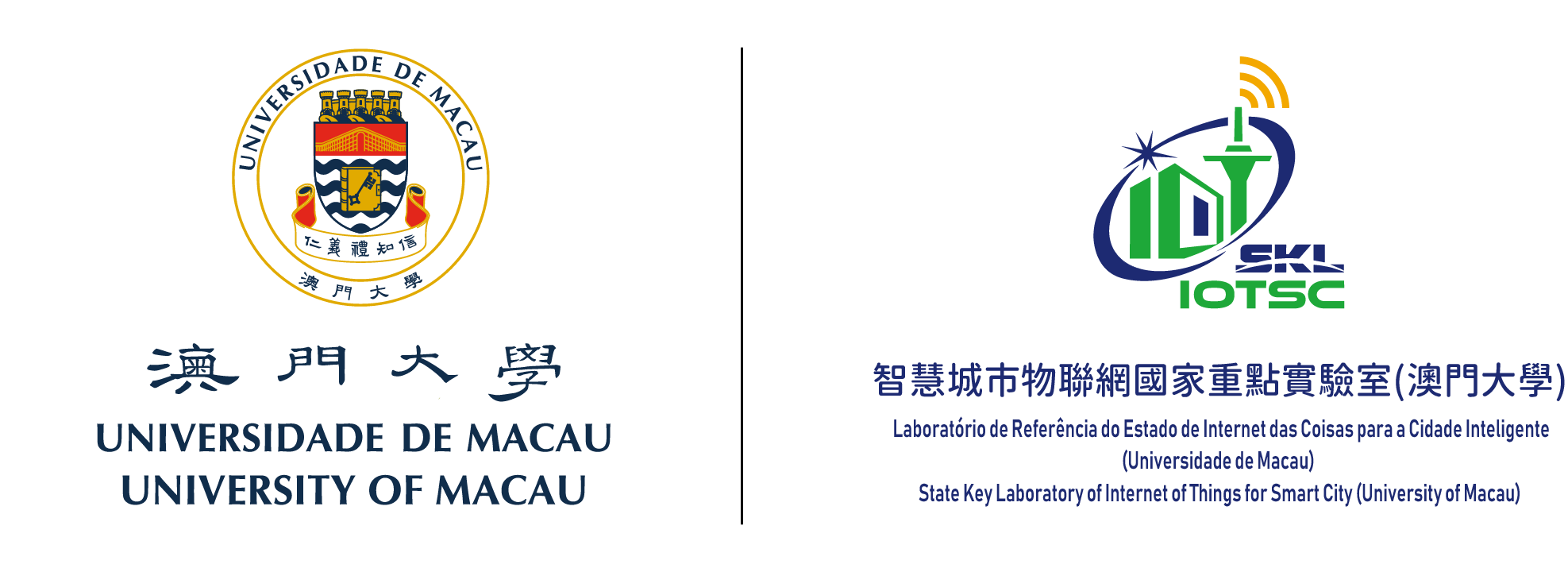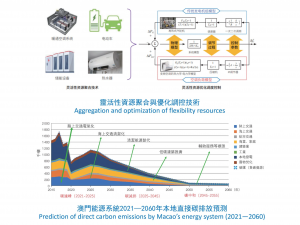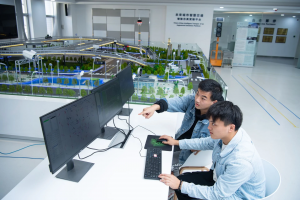A research team led by Yonghua Song, rector of the University of Macau (UM) and director of the university’s State Key Laboratory of Internet of Things for Smart City (SKL-IOTSC), recently proposed technical pathways for accelerating the progress towards carbon neutrality in Macao’s energy system. The study of the research team, titled ‘Typical Pathways towards Carbon Neutrality in Smart City Energy Systems: The Case of Macao’, has been published by Bulletin of Chinese Academy of Sciences, a core media journal of the National Science Think Tank.
Taking into account the fact that Macao belongs to the demand side of the energy system, she has limited land resources, most of her electricity is purchased from the China Southern Power Grid, as well as other actual situations in the city, the research team has proposed the following four technical pathways for accelerating the progress towards carbon neutrality in the city’s urban energy system: Firstly, considering Macao’s high energy consumption, to achieve carbon neutrality, it is necessary to focus on demand-side management and reduce the direct carbon emissions of the city through technical means such as electrification of land transport, hydrogen-powered sea transport, and low-carbon buildings. Secondly, to address the shortage of urban land resources, it is necessary to effectively utilise space resources, e.g., roofs of urban buildings, to develop clean energy sources such as distributed solar power generation, so as to achieve a clean alternative to local power generation and reduce the direct carbon emissions brought about by local power generation. Thirdly, to deal with the large amount of purchased electricity consumed by Macao, the city needs to actively participate in green electricity trading and provide ancillary services in the electricity market of China Southern Power Grid, so as to actively consume green electricity on the one hand, and provide carbon sink resources for the external power grid on the other, so as to take up more important responsibilities in the whole energy supply chain and to achieve carbon neutrality in the real sense. Fourthly, for the application of modern technologies in the integrated management of urban energy systems, the internet of things, big data, and artificial intelligence technologies must be used to achieve scientific planning, operation, and control of integrated urban energy systems, in order to support the effective integration and application of various urban carbon neutral technologies.
Based on the technical pathways above, the UM research team predicts that from 2025 onwards, Macao’s direct local carbon emissions will fall each year as technologies such as electrification of land transport, hydrogenation of marine transport, local clean energy substitution, and low carbon buildings are promoted. At the same time, the Macao electricity grid as a whole will begin to actively provide ancillary services to the China Southern Power Grid, resulting in a year-on-year increase in carbon sink resources. Around 2050, Macao’s direct local carbon emissions from fossil energy combustion will be offset by the carbon sink resources it provides, achieving carbon neutrality in Macao’s local carbon emissions. In addition, given that the Macao SAR government can provide economic incentives for the Macao electricity grid to purchase green electricity from external sources, it is expected that Macao’s indirect carbon emissions from external electricity purchases will be neutralised before 2050.
The Macao SAR government actively supports the national ‘double carbon’ objectives and is committed to environmental protection, energy saving, and emission reduction in Macao. The UM research team believes that Macao has the basic conditions to take the lead in achieving carbon neutrality among other cities in China. With the policy guidance of the central government and the SAR government and the extensive participation and support of all Macao residents, and driven by advanced energy technologies, Macao has the potential to develop into a pioneering demonstration city for carbon neutrality in China.
The authors of the paper include SKL-IOTSC Director and Chair Professor Yonghua Song, Assistant Professor Zhang Hongcai, and PhD student Chen Ge. The research study was funded by the Macao Funding Scheme for Key R&D Projects under the Science and Technology Development Fund of Macao (File no: 0003/2020/AKP). In July 2018, UM received approval from the Ministry of Science and Technology of China to establish the first state key laboratory in the field of internet of things for smart cities in China. Positioning itself as a top institute with Macao characteristics that takes advantage of the city’s strengths to meet the needs of China, the laboratory is dedicated to solving key scientific and technical problems in the areas of internet of things and smart city, proposing fundamental and common theories, algorithms and systems, developing smart city demonstration applications, and providing technical support for smart city development in Macao, the Greater Bay Area, and China.
Bulletin of Chinese Academy of Sciences is a comprehensive science and technology journal organised by the Chinese Academy of Sciences. It focuses on research reports by Chinese scientists on major strategic issues in science and technology as well as economic and social development in China. The journal also reviews the current status and trends of important frontier and cross-cutting disciplines and explores the interactions between technology and society.
To view the full version of the paper, please visit: http://www.bulletin.cas.cn/zgkxyyk/ch/reader/create_pdf.aspx?file_no=2022Y020&flag=1&year_id=&quarter_id=



